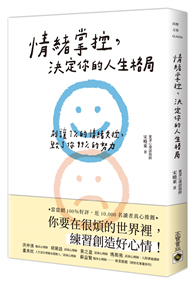Dr. Ann Marcus-Quinn is an Associate Professor in Technical Communication and Instructional Design at the University of Limerick, Ireland. She is the Course Director for the MA in Technical Communication and E-Learning and a Research Affiliate of the Economic and Social Research Institute (ESRI), Dublin, Ireland. Her research interests include eLearning, Open Educational Resources, accessibility, usability, instructional design, and the use of Information and Communication Technology (ICT) at the post-primary level. She has also completed research reports for international organisations including the EU Commission, the OECD and the European Disability Forum. Ann is a Working Group leader of the COST Action LEAD-ME (CA19142).
Dr. hab. Krzysztof Krejtz an Associate Professor of Psychology at SWPS University in Warsaw, Poland, where he is running the Eye Tracking Research Center. He holds a Psychology PhD from the University of Warsaw, Poland. He has been a guest professor at Ulm University (Germany). His research and teaching interests include inclusion and accessibility technologies, Human-Computer Interaction and Usability Research, visual attention and its dynamics, eye-tracking methods and statistics, and multimedia learning. Currently, he is leading the EU-funded COST Action (CA19142) entitled "LEAD-ME. The Leading Platform for European Citizens, Industries, Academia, and Policymakers in Media Accessibility".
Carlos Duarte is an Associate Professor at the Faculdade de Ciências of the University of Lisboa and a senior researcher at LASIGE, where he leads the Inclusive HCI Research Line. He holds a PhD (2008) in Computer Science from the Universidade de Lisboa. His main research interests combine accessibility and intelligent user interfaces to improve the user experience of different target populations. For the elderly, he has explored natural interaction for TV and mobile platforms, social networks and persuasive interfaces to improve their quality of life. For the blind, he has explored ways to improve web accessibility or body-based interaction techniques to improve interaction with mobile devices. Additionally, he has researched techniques for automating the evaluation of the accessibility of web pages. His work has improved QualWeb, a free, open-source, web accessibility evaluation engine. More recently, he has been exploring how conversational agents can be more accessible and how large language models can contribute to digital accessibility. He has published over 100 refereed technical and scientific papers and book chapters. He was the General Chair of W4A’20 and IUI’12 and Program Chair of W4A’19 and IUI’17. He led or participated in 15+ research projects, European and national. He leads one of the LEAD-ME action working groups. He is co-chair of the W3C ACT Rules Community Group where he contributes to harmonised interpretation of accessibility conformance testing. He was part of the W3C EOWG Task Force that is redesigning the curriculum for teaching Web Accessibility.











